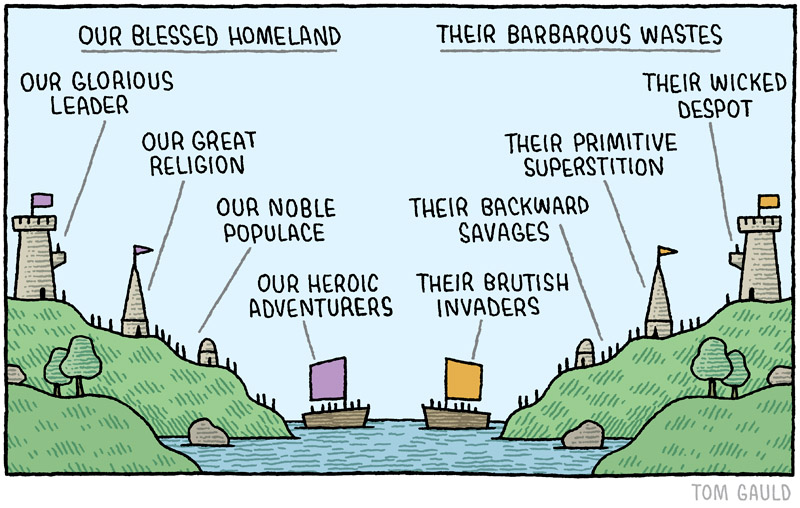The Johannine epistles have a lot to say about group boundaries and who is in and who is out. It is in 1 John that we get the enigmatic and confusing saying that ‘those who went out from us did not belong to us because if they had, they would have remained with us…’ These sort of statements on group boundary markers have often caused significant confusion and hurt in the church, especially when utilised as a means of unilateral exclusion.
Yet there is something profoundly comforting about knowing that we are part of distinct groups, part of something that we can claim membership within. Henri Tajfel saw the great benefit and challenges of group behaviour during the Holocaust and the subsequent slow recovery for the great numbers affected. He saw that we gain a distinct degree of ‘positive social identity’ from identifying with the groups we belong to. In our current era the groups that we belong to—our work, our church, our family—have proven to be greatly needed sources of esteem and identity as we navigate the realities of a complex society.
Nevertheless, our increasing degrees of social categorisation threaten to silo us off from others around us and start to entrench the divisions and separation that is rampant in our world. Perhaps this is most evident in election years, no matter which democracy you are part of. Borderlines are drawn up and separation of social groups by normative identity markers and inter-group comparison becomes the norm. This is only exacerbated by the patterns and algorithms that our social media engines follow—or more realistically ‘unfollow’—that serve to present siloed information stacks direct to our willing eyes, ears, and hearts.
However, as Christians, we must take seriously Jesus’ new command to ‘remain’ with Him, and the corresponding implication that we should therefore remain together. Or Paul’s bafflement at the disunity of the Corinthian church, as it squabbled over diverse leadership. Therefore, the question naturally arises, how can these silos be broken open? How can there be further inter-group contact and conversation?
One practical example came up for me a few years ago when I was down a Reddit rabbit hole and came across this AMA from Daryl Davis. In it he discusses his documentary ‘Accidental Courtesy’ that documents his relationship over the years with members of the Klu Klux Klan (KKK). After having a read through the pages of the AMA, I was intrigued and watched the documentary on Netflix.
One poignant moment in the documentary is where he talks about his motivation for cultivating friendships with Klansmen. There the overriding question he asks is “How can you hate me if you don’t even know me?” From sitting down in a bar with Klansmen, to being invited into their home, this question—and the associated interpersonal interaction—drives the conversation at hand. The results show how successful it is, as Davis displays a wardrobe full of Klan robes that were given to him after members had left the Klan.
Daryl Davis’ documentary is a strong example of actively reducing inter-group interaction to inter-personal interaction by face-to-face contact and conversation.
A couple of points from his AMA are worth repeating. He writes:
While you are actively learning about someone else, realize that you are passively teaching them about yourself. Be honest and respectful to them, regardless of how offensive you may find them. You can let them know your disagreement but not in an offensive manner.
Don’t be afraid to invite someone with a different opinion to your table. If everyone in your group agrees with one another and you shun those who don’t agree, how will anything ever change? You are doing nothing more than preaching to the choir.
When two enemies are talking, they are not fighting, they are talking. They may be yelling and screaming and pounding their fist on the table in disagreement to drive home their point, but at least they are talking. It is when the talking ceases, that the ground becomes fertile for violence. So, KEEP THE CONVERSATION GOING.
I highly recommend the documentary, which is available on Netflix: Accidental Courtesy. Its a good approach, and while it is focused on race relations in America, the concepts behind it are broadly applicable. If you don’t have Netflix, then NPR have an interview with Davis up here: http://www.npr.org/2017/08/20/544861933/how-one-man-convinced-200-ku-klux-klan-members-to-give-up-their-robes The AMA on Reddit also contains some absolute gold from Davis and others.





Leave a Reply
Your email is safe with us.